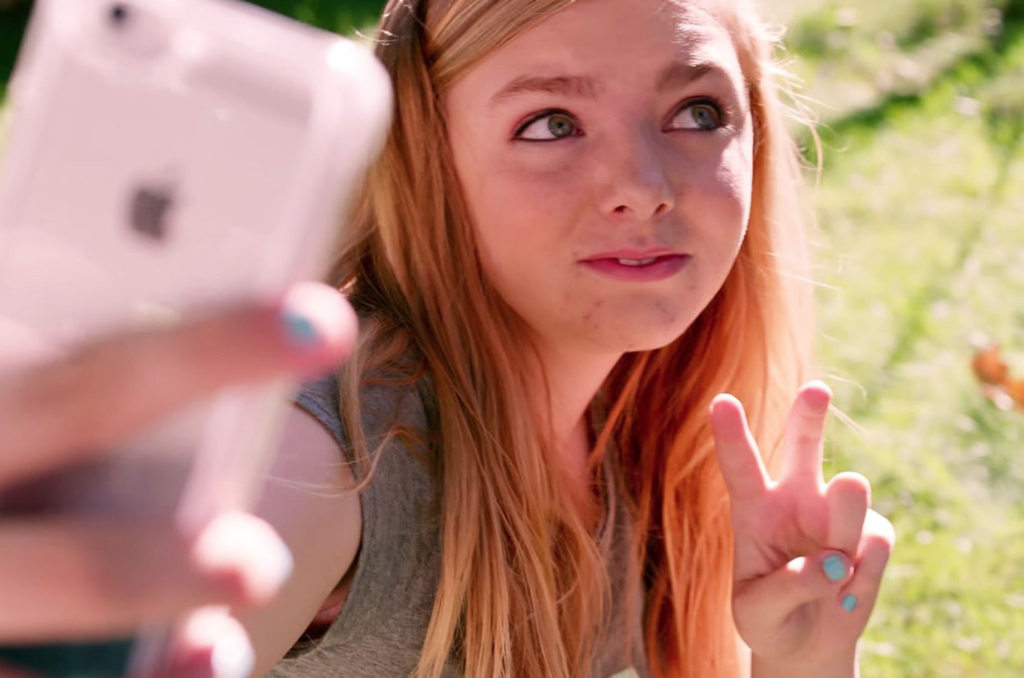
For some reason, it’s easy to write off certain times in our lives. Upon first reflection (as a 32-year-old), my time in junior high feels so inconsequential and innocuous, having gotten through it relatively unscathed, and then gotten through high school (which always felt a lot scarier than junior high anyway). And then there’s college, which is a reset of sorts. College has a way of washing away the nastiness of adolescence. All those insecurities and confusions and embarrassments. Which is not to say that entirely new forms of insecurity and confusion and embarrassment don’t arise upon entering the new world of adulthood. But you are able to look back on your younger days and reconsider the things that you thought were so important when you were a teenager. You can brush off the awkward moments and the fears, because ultimately you were able to get through them. And as you get into adulthood, you tend to forget all those worries and fears that you experienced.
But then you have kids. And the things you thought you’d left behind…you experience them all over again through your children. I’m not sure which is worse, since my kids are still little. But they’ll be teenagers eventually. They’ll get to middle school, and they’ll deal with the same kinds of struggles that we did as kids. Except it’s different now. I didn’t have Snapchat and Instagram and Twitter. I didn’t have a cell phone that kept me constantly connected to the online world. And in some ways, the prospect of guiding my kids through this time with all these new challenges is even more terrifying than going through them the first time by myself.
Eighth Grade is a film about Kayla, a shy girl who wants to be confident. It’s her last week of eighth grade before she goes off to high school to start the next chapter of her life. Even though she’s shy, she aspires to be outgoing and fun and social. She makes YouTube videos that give advice to her peers, even if she doesn’t always live up to her own guidance. And that, really, is the essence of this movie’s message. Young people today are constantly forced to play-act their reality. There’s this constant competition to get as many likes, follows and shares on social media as possible. So teenagers spend the majority of their day creating a persona of themselves that they can brandish to the real AND digital world. In some ways, social media platforms allow a shy girl like Kayla to express herself in the way she wishes she could be. However, if that expression is just in the form of a fictionalized or embellished character, instead of her true self, is that more harmful to her sense of self and worth? These are themes that the film explores with an almost cinema verite technique. The dialogue is full of “ums” and “likes,” and is infused with all the modern cultural phrases that kids use today. We, as adults, get an insider’s peek into this world that we’re so removed from. It allows us to experience their reality in a way that we normally wouldn’t.
For that reason, this was actually a difficult film for me to watch. Part of that has to do with the sheer awkwardness of this particular age group. Watching their strained social interactions is painful at times. Particularly Kayla, who tries so hard to connect but just can’t seem to get on the same wavelength as her peers. She just seems so young still. And even though it’s clear that she has a perceptive grasp of the societal complexities of her age group, she’s limited by an almost crippling shyness – which makes her painfully awkward to watch. And the director, Bo Burnham, does a great job of putting us into her point of view. For example, at a pool party – the ultimate test of social anxiety for a self-conscious thirteen-year-old girl – the camera stays tight on Kayla as she navigates the raucous party. In the pool, the camera stays half under water, and every once in a while the swell of the pool causes the frame to be flooded over – a perfect cinematographic representation of the suffocating, drowning feeling of being at a big social function and feeling overwhelmed and unconfident.
It’s also painful to watch as the father of a shy girl in this day and age. My daughter is still in kindergarten (luckily). But this was a sobering realization that in a few short years, I’ll be the dad in this movie, sitting at the dinner table as she buries herself in her phone, or nervously spying on her during her first teenage gatherings, or trying to connect to her in ways that I don’t fully understand. Worrying about all the things that she’s going through that she will never tell me. I wouldn’t say I actually enjoyed watching this movie. It was sad, and scary, and the further integration of technology in our society is only going to compound the problems this film presents.
So, I suppose the only thing I can do as a parent in the digital age is to accept it, and to learn as much as I can, and to keep myself open to my kids, just in case they do open themselves up to me in times of vulnerability.
This film was a powerful example of how important human connection is, and how we as people (adults and young people alike) need to stay attuned and vigilant to the world as it changes around us.
4 out of 5 stars